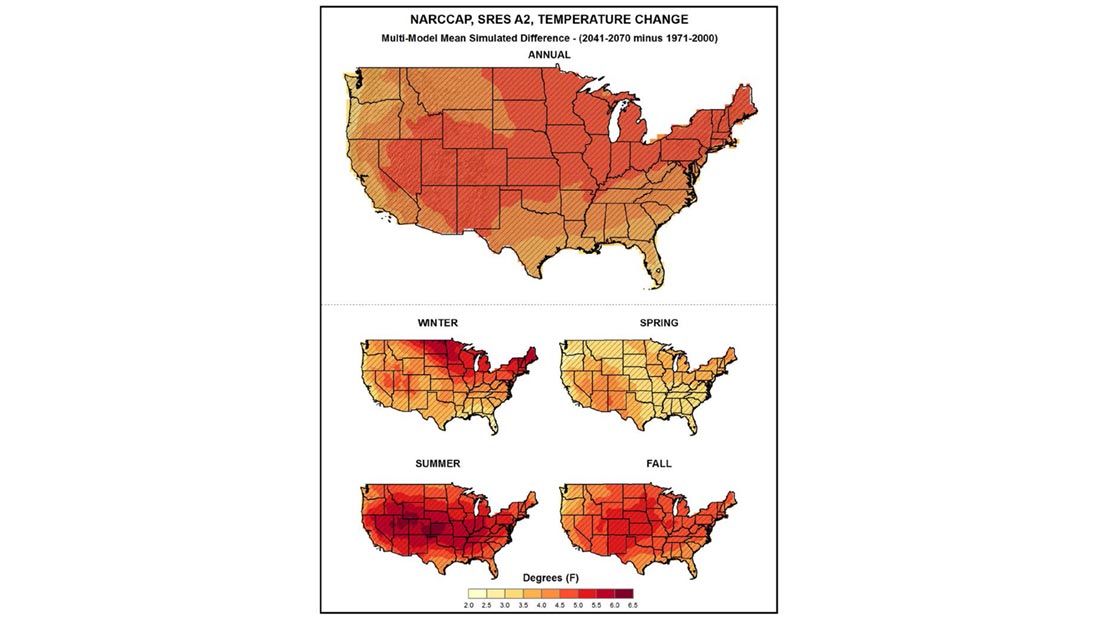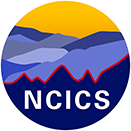
Figure from NOAA Technical Report NESDIS 142, Regional Climate Trends and Scenarios for the U.S. National Climate Assessment. The figure shows the simulated difference in annual and seasonal mean temperature (°F) for the contiguous United States, for 2041-2070 with respect to the reference period of 1971-2000.
CICS-NC’s Kenneth Kunkel is the lead author on a paper in Climatic Change describing the climate and sea level rise scenarios that were developed in support of the Third U.S. National Climate Assessment (NCA3).
The article explores the process of developing these scenarios, including the selection of models and downscaled data sets, choices about which climate variables to present, and the challenges of providing useful estimates of sea level rise along with information about the corresponding uncertainties. Strategic planning for the scenario development was managed by a working group of the Federal advisory committee that oversaw the assessment process. A key innovation for the climate scenarios was to develop a set of regional-level climate outlooks, corresponding to the U.S. regions defined for the NCA3.
The authors conclude with several observations and suggestions for ways to build on the NCA3 scenarios process to produce even more useful information for future assessments. These include starting scenario development earlier in the process, providing training to author teams on using the scenarios, and providing for ongoing engagement and input from both the scientific and end-user communities.
Development of the climate scenarios was led by CICS-NC scientists Kenneth Kunkel, Laura Stevens, Scott Stevens, Brooke Stewart, and Liqiang Sun, working closely with experts from around the country. The climate and sea level scenario reports were all published as peer-reviewed National Oceanic and Atmospheric Administration Technical Reports, and are available online at https://scenarios.globalchange.gov/scenarios/climate and https://scenarios.globalchange.gov/scenarios/sea-level.
Kunkel, K. E., R. Moss, and A. Parris, 2015: Innovations in science and scenarios for assessment. Climatic Change, 135, 55-68, doi:10.1007/s10584-015-1494-z. Available online at: http://dx.doi.org/10.1007/s10584-015-1494-z
